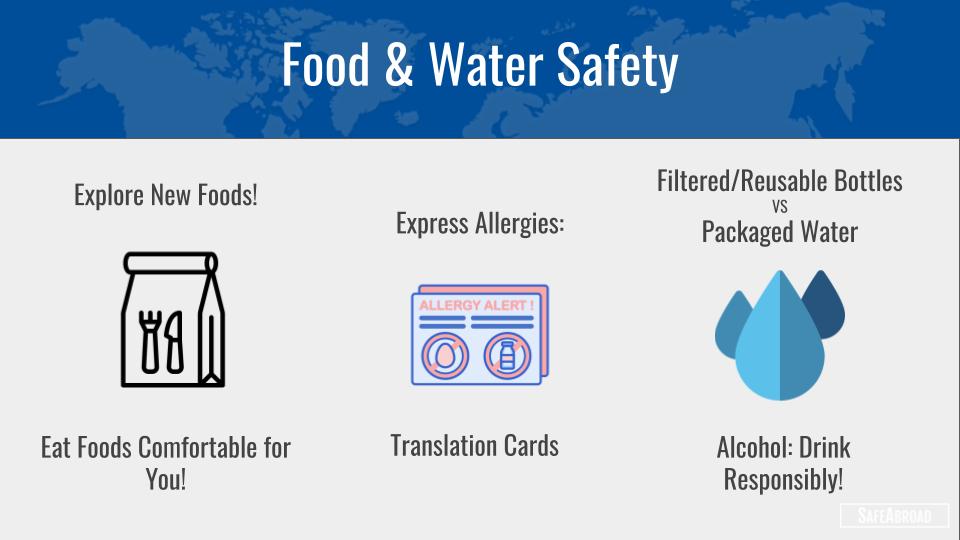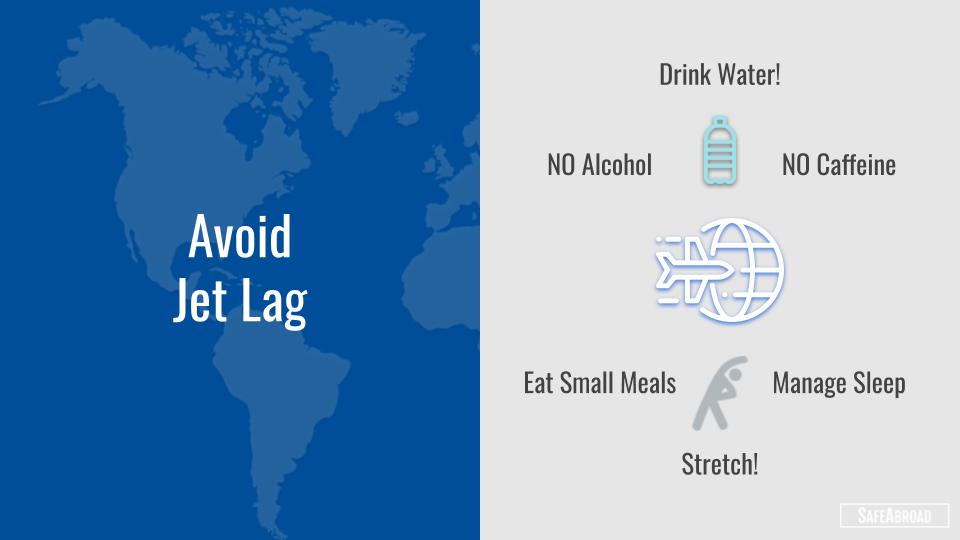Here are some other topics and tips that are important to your personal health.

To minimize discomfort, add foods you normally eat into your diet abroad and try to not overeat. Try to eat at popular places. You can also check Yelp or the Fork. These online reviews can help you avoid bad experiences that others have gone through!
When dining out, if possible, try to watch how the food is prepared, fully cooked food is always the safest.
If you have food allergies, carry around a card with your allergies written in English and the native language of your host country. You may also want to know how to say you have a particular allergy in the native language.
It is recommended to drink only purified or bottled water in your host country. In the case that bottled water is not available, bring a water purifier, water purifying tablets or a high quality water filter.
If you decide to drink abroad, make sure you are with people that you trust and that you drink responsibly. Also, make sure you know the legal drinking age in the country you are traveling to.

To minimize its impact while traveling, drink plenty of water, avoid big meals, alcohol, and caffeine. Ensure you are getting up every once in a while to stretch your legs. If you can sleep during the flight, do so. Once you reach your destination, make sure you eat meals at local times, drink plenty of water, and get outside. If you are sleepy during the day, take a short 20-30 minute nap. Try to limit naps and sleep during local night hours.


